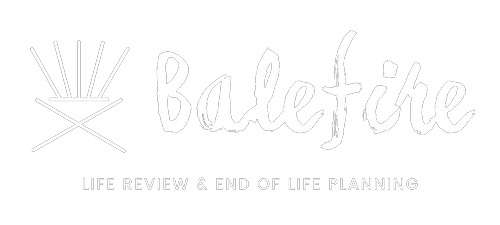Coping with the Death of a Loved One as a Highly Sensitive Person
I bet you’re very well-versed in self-help and psychoanalytic lingo. You’ve done a lot of work on yourself and you know so many techniques to help people when they’re down. But do you do it consistently for yourself? Laughable, I know. This gets even more complicated and cumbersome when we experience the death of a loved one.
How do you even begin to cope? Think of what you do for other people when they’re going through a hard time. The person you’re serving this time is your most sensitive, vulnerable self, banging on the doors of your heart to be let out for some space because it feels shattered. You don’t need to push that part of you down or away, make it smaller, or call it wrong. What you need to do instead, is assure it that there will be time for all of it.
Then, it’s your job to keep that promise to yourself! That’s how you begin to trust yourself in this new world without your loved one. Plan for the time you need to grieve, however you need it.
So, here’s the nitty gritty of coping with the death of a loved one when you’re a highly sensitive person:
Honor your sensory triggers and needs.
First thing’s first: Be gentle with yourself.
Do what helps when you’re overstimulated and understimulated.
Notice the signs that indicate your sensory triggers might be nearby or soon, and prepare accordingly.
This work is lifelong and worth it! If you are reading this in preparation, take this as your sign to get to work on this task.
Do what it takes to make sure you’re able to get a reasonable amount of sleep, food, water, and cleanliness.
These basic needs are the foundation necessary for integration of your experiences after big life transitions.
Move your body out of emergency mode by meeting your basic physical needs, then you can more openly, courageously, and intentionally care for your mental, emotional, and spiritual needs.
Be creative.
Explore what life and death mean to you. Trust your heart throughout the process.
What CAN you do? The possibilities are endless. Some ideas include: light a candle and pray or meditate, go on a vacation, do genealogy research, start a foundation or non-profit in their honor, make art, write, host a ritual, have difficult conversations, clean out the house, and so much more. As you continue this practice of honoring your grief while coping with the death of a loved one, that part that felt so vulnerable will grow to become stronger. You will regain your footing and become more confident in your expressions of life and love and experience.
This part of the process is more significant for highly sensitive people. We move emotions through our bodies, brains, and spirits differently. Sometimes we need to make our own paths. This is when you do that.
Lean on your support system.
Whether it’s your other loved ones, companies you hire, or a tool you use, there is no shame in needing help. None of the other points made above are easy without a support system.
This is the main point, y’all! I recommend your own village or the means to create one around you quickly, with people who insist on honoring your experience and validating your needs.
With knowledge of your sensory and basic needs, identify the people, companies, and tools you’ll likely need to engage with during times of high stress. Communicate with the people you plan to look to, and test out relationships with the companies you’re interested and the tools you may use. For example, the next time you’re sick, instead of being miserable alone, call the friend who said would be there for you, and ask them to pick up your medicine or watch a movie with you online. This can help you understand people’s boundaries in real scenarios and also help you bond more closely. Your busiest month of the year, try hiring a cleaning service or that meal delivery service you’ve been eyeing. When you need it most, you want it to be a familiar experience.
If this writing is meaningful to you, this discussion about death and dying experiences for highly sensitive people might be, as well. Consider joining me to chat about the things we’ve noticed, the things we’re thinking about, and what we’ve experienced.


